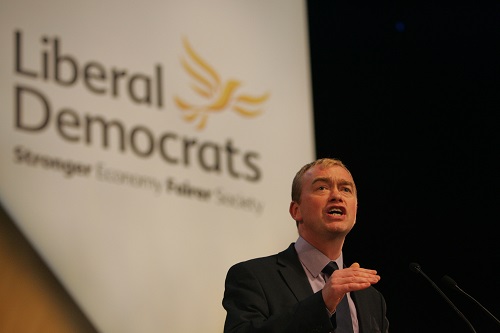
Tim Farron, an evangelical Christian, stepped down under duress as the leader of the UK’s Liberal Democratic Party after admitting that he privately believes his church’s teachings about homosexuality and abortion. Like many politicians, he did not allow his ethical views to affect his public conduct. But the mere possibility that he privately held such retrograde beliefs was enough to drive him from his job – a fact that should concern everyone who supports a free society, writes Ed West in his first essay for Religion & Liberty Transatlantic.
West, a blogger for The Spectator and deputy editor of The Catholic Herald, recounts the debates in the weeks leading up to Farron’s resignation:
Nowhere among the traditional party of liberty was there any sense that people might hold a range of views on a highly contentious and divisive subject, one on which 43 percent of the public hold views not dissimilar to Mr. Farron’s.
Mr. Farron was criticised for failing to stand up for his beliefs. Certainly he did not exactly appear as a latter-day Thomas More or Hugh Latimer, but perhaps he thought it was more important to prevent Britain leaving the European Union – an inner moral dilemma that St. Thomas More might have appreciated.
But his failure to stand up for those beliefs sets a troublesome precedent, for if powerful politicians aren’t allowed to hold unpopular beliefs – ones that do not affect their voting record – what hope is there for the rest of us? One of the disturbing trends of our age is that many young people feel that they cannot reveal their opinions in public … partly because social media and campuses are dominated by angry radicals who rarely meet dissenting opinions. But young people also suspect, perhaps rightly, that their employment prospects might be affected if they hold the wrong view.
The demand for ideological purity is out-of-place among Liberal Democrats, he writes, a party that traces its history outside the established state church, among people like his own father’s family.
Yet it is not only one party, or the political vocation, which demands rigid orthodoxy as a condition of employment. “Across Europe the range of acceptable opinions in the professions has shrunk,” Ed West writes. He cites, for example, midwives who were denied employment over their religious objection to performing abortions among other cases of capable professionals denied the right to earn a living based on their deeply held beliefs. Everyone is expected to accept “British values.” The hazy content of those values in no way makes their presumed authority less absolute for all native born Europeans, at all times, in all professions:
Roman Catholics, of course, are a bit more historically sensitive about Test Acts. There was a time when having allegiance to the Bishop of Rome by definition put one outside of the political community. It took a long, long time, and many dead bodies, before England was able to have genuine pluralism. Many now fear that period of pluralism will turn out to be just an historical anomaly.
You can read his entire article here.
(Photo credit: Liberal Democrats. CC BY-ND 2.0.)

